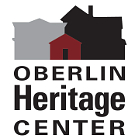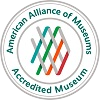Researching Women Physicians in the 19th & 20th Centuries
Saturday, January 30th, 2010By Chloe Drummond (Oberlin College class of 2012)

This Winter Term, I wanted to stay in Oberlin and work locally. I hadn’t had an internship position for Winter Term before and I thought that working for the Oberlin Heritage Center would be a great opportunity to learn a lot about Oberlin, conduct in-depth history research—something I hadn’t really done before—and give my time to an organization that does a lot for the Oberlin community that I have grown fond of. And let me tell you, I think my Winter Term has been incredibly fulfilling. Not only have I met wonderful people who are truly passionate about their work, but I have learned to use resources I hadn’t previously known about.
I have been working on research about women physicians who practiced in Oberlin in the 19th and 20th centuries. I have found interesting information ranging from specific details such as a person’s physical features and notes about communication preferences, to broader context, such as the environment in which women practiced medicine at this time in U.S. history. Because of the centuries I was dealing with, it was tricky to find a lot of specific information that wasn’t recorded by Oberlin College. For example, I was unable to track down day-to-day practice information of the physicians who had private offices. I was, however, able to find a lot of information on the physicians who worked for the college. I believe that my work, as tough as it was to find information, has only scratched the surface. With more time, and by looking at different school records, city directories and hopefully other good pockets of sources, more information on these women will be revealed. It has been an interesting project because I have learned a lot about Oberlin College’s early physical education programs and in general, the kinds of work that women physicians were confined to in the early stages of allowing women to practice medicine in the United States. Personally, I have developed research skills that I know will be useful later on. I am hoping that the Oberlin Heritage Center can make good use of my project.








